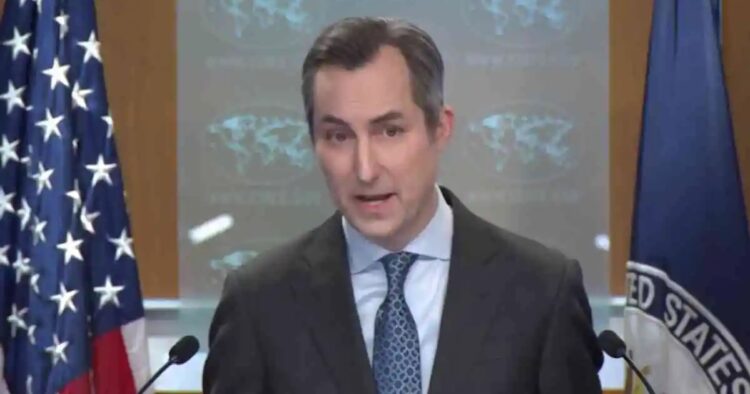In a recent statement, the United States voiced its worries regarding Bharat’s Citizenship Amendment Act (CAA) and emphasized that it is closely observing the execution of this controversial law. The announcement was made by Matthew Miller, the State Department Spokesperson, during a routine briefing with journalists.
The CAA, officially notified on March 11, has sparked domestic and international concerns. The law aims to grant citizenship to undocumented migrants from neighboring countries like Pakistan, Bangladesh, and Afghanistan, who are non-Muslim and arrived in Bharat before December 31, 2014.
Despite assurances from the Bharatiya government that the CAA does not affect the citizenship status of Bharatiya Muslims and that they enjoy equal rights, opposition parties have raised objections and protests have ensued.
The Biden administration’s statement underscores the importance of religious freedom and equal treatment under the law for all communities, echoing fundamental democratic principles.
Meanwhile, Hindu American groups have welcomed the enactment of the CAA, viewing it as a positive step towards providing citizenship to persecuted minorities from neighboring countries.
However, Pakistan has vehemently opposed the CAA, labeling it as discriminatory and alleging that it discriminates against people based on their faith. Pakistan’s Foreign Office spokesperson, Mumtaz Zahra Baloch, criticized the legislation, claiming that it is based on the false assumption that minorities are persecuted in Muslim-majority countries of the region.
Baloch urged Indian authorities to cease what she referred to as the “pre-choreographed targeting and systematic marginalization” of minorities within India.
The BJP-led central government in India has consistently defended the CAA, reiterating that it is intended to grant citizenship and emphasizing that no citizen of the country will lose their citizenship as a result of this law.
As the implementation of the CAA unfolds, international scrutiny and domestic dissent continue to shape the discourse surrounding this contentious legislation.

















Comments